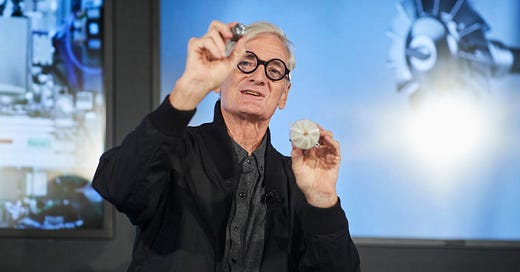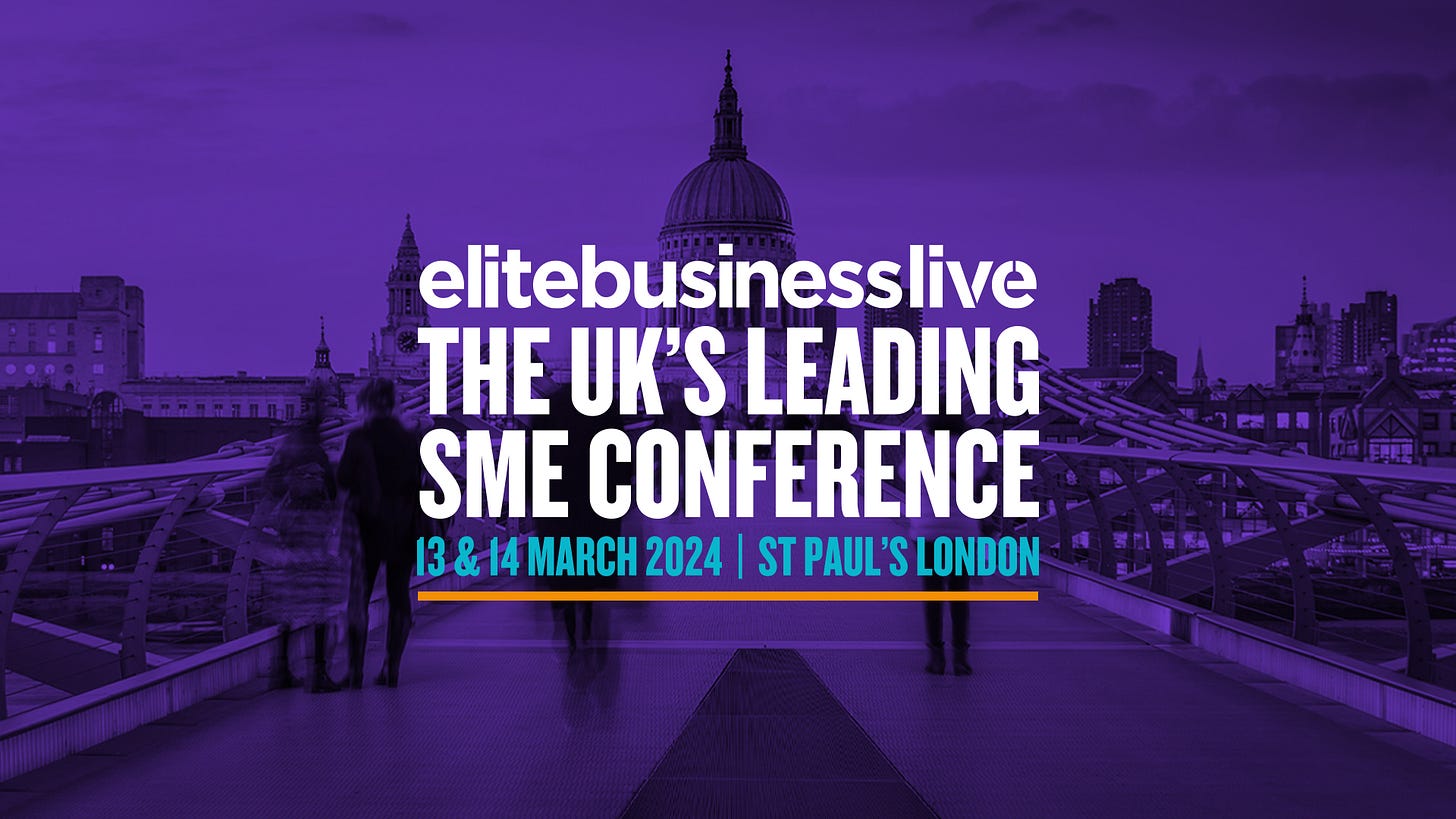Hello and welcome to the latest edition of Off to Lunch…
Dyson is spending £9 million every week on developing new products, including robots, artificial intelligence, and battery technology.
That striking figure was revealed in the company’s latest results, which have been published today.
Dyson said that sales rose 9 per cent to £7.1 billion in 2023 while annual profits rose by the same percentage to £1.4 billion.
Sir James Dyson, who founded the company in 1991 and still wholly owns it, said:
“Despite all the headwinds, including a challenging economic environment, inflation, product shortages, and the continuing impact of the 2022 closing of our Russia business – 2023 was a very good year.”
Dyson employs more than 3,500 people in the UK and much of its investment in research and development is through its facilities in the south-west of England. That investment in new products equates to £468 million for 2023 as a whole and is up 40 per cent on the previous year. For all the concerns about the lack of innovation in the UK, this is a company working at the forefront of new technology.
We noted in yesterday’s Off to Lunch that Dyson, like Apple, had scrapped plans to develop an electric car (more on that here). However, the company says it is investing heavily in a pipeline of other new products that “stretches ten years into the future”. This is understood to include household robots that could complete everyday chores, such as tidying up.
Recent products that the company has launched include the Dyson 360 Vis Nav, a robotic vacuum cleaner, and the Dyson Airstrait, which claims to dry and straighten hair at the same time without causing any damage.
For those interested in more on Dyson and the history of the company I have two recommendations for you. Firstly, this Twitter thread…
And secondly, check-out the episode of the Founders podcast which summarises Sir James’s autobiography Against the Odds. You can find that here
Podcast…
The latest episode of our Business Leader podcast is the second part of our look at how B&M became one of the biggest retailers in the UK. In this episode we cover B&M’s transition from a promising medium-sized business to a FTSE 100 giant. This is a transition that many businesses fail to make. For B&M, it was about keeping your focus despite constant distractions. But it was also about learning and evolving - in terms of strategy and people. We also speak to Simon Arora about why he stood down as B&M’s chief executive and what may come next for him and the business.
You can listen to the episode on Substack here, Spotify here and Apple here
Other stories that matter…
1. Jeremy Hunt is considering scrapping the non-dom tax status in the Budget next week. The move could raise up to £3.6 billion a year for the government. More from the BBC here. If you want to explore what other policies the chancellor could announce in the Budget and step into Hunt’s shoes yourself (a daunting task), then Bloomberg has launched a new game that challenges you to cut taxes without crashing the pound or the public finances. You can find the game here
2. Bitcoin and other cryptocurrencies have been written-off so many times. But bitcoin has just cleared $60,000 for the first time since 2021 and is heading towards an all-time high. You can see a graph of the bitcoin price below and read more here
3. The Financial Times has published a fascinating feature on what it is like working in the restructuring industry right now given that there were more corporate insolvencies in 2023 than any year since 1993. “That sustained pressure has impacted small and mid-sized firms first because they’ve had less flexibility to adapt,” says Jo Robinson of EY in the feature, which you can read here
4. The Guardian has launched a new “deeply read” feature that ranks articles in order of how much time people are spending on them. The feature is designed to promote The Guardian’s engaging content alongside its ranking of the “most viewed” articles. You can read more about the feature and the reasons for introducing it here
5. Microsoft Office has changed its default font for the first time in 17 years. Did you notice? It’s goodbye Calibri and hello Aptos. The New York Times has done a feature on this and spoken to Microsoft about the reason for the change (it’s interesting, I promise). You can read the piece here
The UK’s Leading SME Conference is Back…
Elite Business Live is returning to London on March 13th and 14th 2024.
Attendees will unlock unprecedented growth opportunities through insightful panel discussions, interactive breakout sessions and unparalleled networking opportunities.
This year's agenda will delve into topics ranging from Sales, PR, Data and AI and boasts a roster of speakers spanning various industries, including:
Piers Linney – Former Dragons’ Den Investor, co-founder of Implement AI
Richard Harpin – Founder and Chairman of HomeServe
Allyson Stewart-Allen – Founder and CEO of International Marketing Partners
Mirela Sula - Founder and CEO of Global Woman Magazine and Global Woman Club
The conference will be accessible via both onsite studio tickets and FREE virtual livestream viewership.
You can buy your tickets here
And finally…
For those interested in who presents the television coverage of election night in the UK, then The Sun has interesting news today. It is reporting that Laura Kuenssberg and Clive Myrie will lead the coverage for the BBC, replacing Huw Edwards. You can read The Sun’s story here
Thanks for reading. If you enjoy Off to Lunch then please share it with others and spread the word. If this newsletter was shared with you then please sign-up below to get Off to Lunch sent directly to your inbox
Best
Graham










